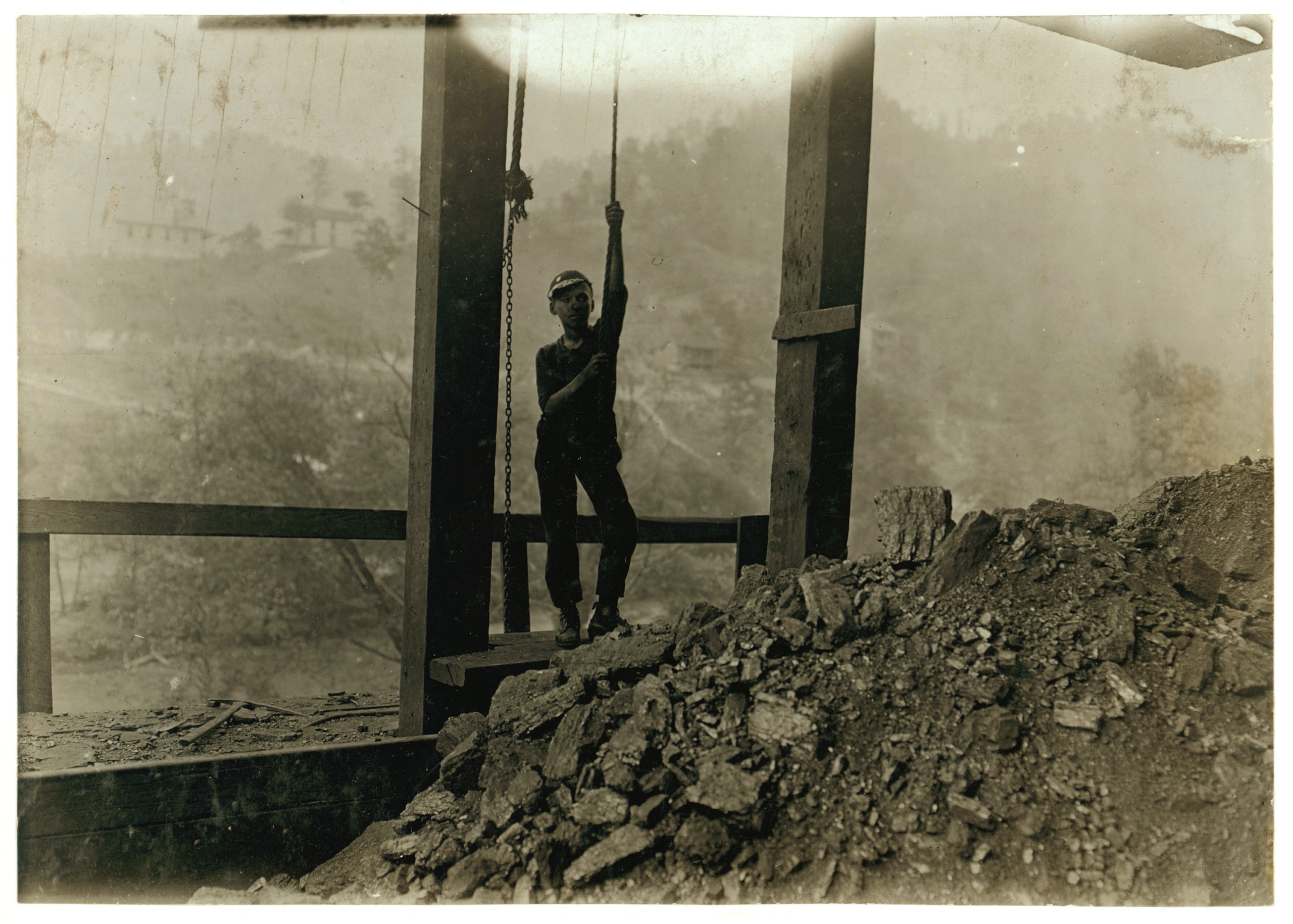An article on “Prosecution of Companies in India” has been written by Anubhab Sarkar
An article on “Prosecution of Companies in India” has been written by Anubhab Sarkar, Sr. Assistant Professor of MIES R M Law College, an excellent law college in Bengal. it is one of the best law schools in West Bengal, situated at Sonarpur, South Kolkata. It has completed many years of its glorious journey in the field of law education. MIES R M Law College is one of the best legal education providers in India under Vidyasagar University, West Bengal, and approved by the Bar Council of India.
Introduction of PROSECUTION OF COMPANIES IN INDIA
Corporation plays a vital role in our society nowadays and their activities affect the liberty and life of citizens in many ways.[1] Corporations are a significant factor in boosting our economy and they play a vital role in the industrialization of our nation.[2] Recent experience shows that corporations have been involved in various financial irregularities and scams. Hence, it has become important for corporations to be amenable under a criminal law so that they can be deterred from victimizing society.[3] The amenability of corporations under criminal law ensures a stable economy and a peaceful society.[4]
Section 11 of the Indian Penal Code (IPC)
Section 11 of the Indian Penal Code (IPC) includes company or association within the fold of the definition of persons and Section 2 of the IPC says that all persons can be punished under the IPC. Reading both the provisions clearly establishes the fact that a company can be prosecuted in India. Two distinct issues arise when we talk about prosecuting a company. First is whether it can be said that a company possesses requisite men’s rea to commit a crime, which is an essential ingredient to punish anyone under the Criminal Code.[5]
The second issue arises when a penal statute provides for mandatory imprisonment and a fine, then whether the company should be fined only because it is impossible to imprison a company. But the difficulty arises as a strict interpretation of penal statutes, which a Court is bound to do entails a curious situation as only part punishment i.e. only a fine can be imposed as imprisonment is impossible, so the question that naturally arises is, whether it is permissible by the Court to only enforce part punishment as provided in the statute or whether companies will go scot-free due to difficulty in interpretation.
The author Anubhab Sarkar tracing about Prosecution of Companies in India
The author of this paper by tracing the jurisprudential trend by analyzing various landmark case laws shall try to map out the recent position on the prosecution of companies by the Courts in India and the Court’s take on the above-mentioned two issues faced by the Courts while prosecuting Companies. He shall also enunciate other alternative forms of punishment other than imprisonment which is impossible in the present scenario, which would also be a good deterrent and prevent the companies from committing crimes.
[1] S.K.Tripathi, Corporate Criminal Liability in India, IPleaders Blog, available at https://blog.ipleaders.in/corporate-criminal-liability-in-india/, last seen on 21/08/2017
[1] Dr. S. Kumar, Corporate Criminology: Corporate Offences 467 (1st ed, 2005) [1] Ibid. [1] Ibid.
[1]A.Mishra, Corporate Criminal Liability- An Indian Perspective, available at http://corporatelawreporter.com/2014/01/02/corporate-criminal-liability-indian-perspective/, last seen on 21/8/2017
Position of Criminal Liability: Pre-Standard Chartered Case in respect to Prosecution of Companies in India
Standard Chartered Bank[1] was a landmark decision because prior to it, it was a settled law that a corporation cannot be punished where the code provides for mandatory imprisonment and fine though the Courts have the discretion to impose imprisonment or fine if such discretion is expressly stated in the statute. In the case State of Maharashtra v. Jugmunder Lal[2], the Court said that when the code has used the phrase ‘imprisonment and fine’, the Court is obligated to provide both punishments simultaneously and it cannot pick and choose any one of them because Courts do not have the power to interpret statutes in a way to amend the lacuna existing in the statute.[3]
Few Case studies related to Prosecution of Companies in India
State of Maharashtra v. Syndicate Transport
In State of Maharashtra v. Syndicate Transport[4], it was held that a company cannot be punished where the Code says that imprisonment is mandatory because it would lead the Court into a difficult situation wherein no effective order cannot be made because a Company even though found guilty, cannot be imprisoned. In Kusum Products Limited v. S.K. Sinha, ITO Central Circle, Calcutta[5] it was held that a company being a juristic person cannot be sent to prison and Court cannot impose any sentence or punishment even if a Company is found guilty and if it is done, then it would lead to clear usurpation of the legislative function.
Badsha v. Income Tax Officer
In another case, Badsha v. Income Tax Officer[6] the logic developed in Kusum Products were applied and Court said that a company cannot be punished under Sections 277 and 278 of the Income Tax Act.
[1] Standard Chartered Bank v..Directorate of Enforcement, AIR 2005 SC 2622
[1] State of Maharashtra v. Jugmunder Lal, AIR 2005 SC 380.
[1] Ibid.
[1] State of Maharashtra v. Syndicate Transport,1963 Bom. L.R. 197
[1] Kusum Products Limited v. S.K. Sinha, ITO Central Circle, Calcutta 980 126 ITR 804
[1] Badsha v. Income Tax Officer 1987 (1) K.L.T. 112
A.K. Khosla v. T.S. Venkatasen
In A.K. Khosla v. T.S. Venkatasen[1], the apex court said that there were two essential pre-requisites in prosecuting a company, one is attributing mens-rea to the Company and the second prosecuting a company when the criminal code provides for mandatory punishment but corporate body being an artificial person cannot be said to have both the ingredients.
Oswal Vanaspati & Allied Industries v. State of Uttar Pradesh
However, in the case, Oswal Vanaspati & Allied Industries v. State of Uttar Pradesh[2], the full bench of Allahabad High Court said that a company cannot be imprisoned because obviously, the company is a juristic person but when a punishment of imprisonment and fine is imposed on the company, though imprisonment cannot be awarded to company fine can be imposed on the company because a sentence, if it is in excess of a prescribed sentence, is always illegal but a sentence less than the prescribed sentence may not always be illegal.
P.V. Pai v. R.L.Rinwana
In P.V. Pai v. R.L.Rinwana[3], the Court said that if the legislature intended that a particular offense shall be punished with compulsory punishment and fine, then it is not open for the Court to only enforce fine as such a decision would be a usurpation of the legislative function. In Municipal Corporation of Delhi v. J.B. Bottling Co.[4], a full bench of the Delhi High Court said that under the Prevention of Food Adulteration Act, the imposition of a fine would be legally valid even though imprisonment is not possible.
Manian Transports v. S. Krishnamurty
Similarly in Manian Transports v. S. Krishnamurty[5], a single bench of the Madras high court decided that a company can be prosecuted under Section 276 and Section 277 of the Income Tax Act, and only imposition of the fine was allowed. Issues also arose in fixing requisite men’s rea to the companies while prosecuting them though companies have been prosecuted for violation of other regulations other than the Indian Penal Code[6], as men’s rea is an essential ingredient for a person to be charged under IPC.
Kalpanath Rai v. State
In Kalpanath Rai v. State[7], Supreme Court said that it is a settled position of law that unless specifically excluded by the statute, men’s rea is an essential ingredient to charge anyone for committing a crime and then punishing them. In Zee Telefilms v. Sahara Co.Corp.Ltd.[8] a complaint was brought by Sahara against Zee saying that by hosting a program based on falsehood, they have defamed Sahara. The court dismissed such a complaint on the ground that men’s rea was one of the essential grounds for proving defamation and a company cannot have necessary men’s rea.[1]
[1] A. K. Khosla v. S.Venkatesan (1992) Cr.L.J. 1448
[1] Oswal Vanaspati & Allied Industries v. State of Uttar Pradesh 1 Comp LJ. 172, 1993.
[1] P.V. Pai v. R.L.Rinwana (1993) 2 Comp.L.J, 314 (Karnataka)
[1] Municipal Corporation of Delhi v. J.B. Bottling Co., (1975) Cri.LJ 1148
[1] Manian Transports v. S. Krishnamurty AIR 1975 SC 449.
[1] See P.K. Tejani v. M.R. Danje, 1974CriLJ 313 where a constitution bench held that in food related offences, the doctrine of strict liability will apply.
[1] Kalpanath Rai v State (Through CBI), (1997) 8 SCC 732
[1] Zee Telefilms Ltd.v. Sahara India Co. Corp. Ltd., (2001) 3Cri.LJ, 292
[1] Ibid.
Motorola Inc v. Union of India
In another case Motorola Inc v. Union of India[2], the Bombay High Court stated that men’s rea is an essential ingredient for a criminal offense and companies cannot possess men’s rea because they are artificial persons and hence the allegation of cheating under Section 420 of IPC was quashed.[3]
The Vellappa Textiles case
In the Vellappa Textiles[4] case, the issue was that a prosecution was launched against a private limited company under Section 276 and Section 277 of the Income Tax Act which provided a mandatory punishment of imprisonment and fine. Supreme Court by majority judgment held that the first respondent company cannot be prosecuted under certain sections of the Income Tax Act because the sections require mandatory punishment along with a fine.[5] The majority was of the view that the legislation does not leave much choice in the hands of the Court but only to impose a fine. After strict and literal interpretation, Court found that since a company did not have a physical body, it is impossible to physically impossible to imprison a company but only impose a fine.[6]
Judicis jus decire, non dare
The Supreme Court noted that while interpreting a penal statute, it is not permissible for the Court to deviate from awarding the minimum mandatory punishment provided in the statute as the duty of the Court is to find out the true intention of the legislature and if there are two views possible, then the Court is bound to take the view which prevents a person from undergoing punishment.[7]
The Court noted that Court should be slow while interpreting a penal statute because such an action would lead to re-writing of the stature which is a legislative function thus causing harm to the accused because the duty of the Court is “Judicis jus decire, non dare” which means a judge can only decide but not declare the leading to a usurpation of legislative power and hence the way forward is to make appropriate amendments in the statute by the legislature.[8] The majority view of the Supreme Court was that Company may be attributed to men’s rea because people who are working for the Company have committed a crime in the usual course of business and can be arrested in a criminal case.[1]
[1] Motorola Inc. v. Union of India,(2004) Cri.L.J. 1576
[1] Ibid. [1]Assistant Commissioner, Assessment-II Bangalore, and Ors. v. Velliappa Textiles Ltd and Anr.2004CriLJ1221 [1] Ibid. [1] Ibid. [1] Ibid.
[1]See V.S.Yadav, Corporate criminal liability: A comparative analysis of judicial trend, International Journal of Applied Research 758, 759, available at http://www.allresearchjournal.com/archives/2015/vol1issue10/PartK/1-10-120.pdf last seen on 25/08/2017
Position of Criminal Liability: Post Standard Chartered Bank Case and its Aftermath
Standard Chartered Bank Case[1] was a landmark case that changed the entire course of corporate criminal liability in India. This case departed from the traditional principle of strict interpretation and adopted purposive interpretation in this case. [2]The main contention, in this case, was whether the appellant company can be prosecuted under Section 56 of the Foreign Exchange Regulation Act (FERA) because it speaks about mandatory imprisonment of six months coupled with a fine and cited the Vellappa Textiles case in their favor.[3]
The five-bench constitution bench said that since it is impossible to imprison a company, when a punishment imposes mandatory imprisonment and fine, the first part of the punishment can be ignored, and only a fine can be imposed and this is the intention of the legislature.[4] The Supreme Court said when a company has imposed a fine as well as imprisonment, imposition of fine can be done as such discretion can be exercised against a juristic person i.e. a company.[5]
Standard Chartered Bank Case and its Aftermath
The Court further said that complete immunity cannot be given to companies against prosecution because most serious offenses entail mandatory punishment and fines. [6]The Court further reiterated that blanket immunity cannot be given to companies just because a punishment contains mandatory punishment thereby over-ruling Vellappa Textile Case because companies play a large role in society and a recent trend of large irregularities practiced by the company affirms that prosecution of companies is mandatory to achieve economic stability in India. [7]It was also observed in this case that though initially it was believed that a company cannot commit any crime but now the modern rule is that a company can be prosecuted for crimes committed through its agents except those crimes which require personal malicious intent.
[1] Dr. V.K.Singh, Corporate Power to Corporate Crimes: Understanding Corporate Criminal Liability in India, 253(1st ed.,2013)
[1] Standard Chartered Bank and Ors.. v. Directorate of Enforcement and Ors. AIR 2005 SC 380.
[1] Supra 26. [1] Supra 28. [1] Ibid. [1] Ibid. [1] Ibid. [1] Ibid.
[1] Standard Chartered Bank and Ors.. v. Directorate of Enforcement and Ors. AIR 2005 SC 380.
[2] Supra 26. [3] Supra 28. [4] Ibid. [5] Ibid. [6] Ibid. [7] Ibid.
CBI v. M/S Blue Sky Tie up Ltd
In CBI v. M/S Blue Sky Tie up Ltd.[1] And Others, Supreme Court reiterated the position taken in the Standard Chartered Case and held that the company may be held liable since it has committed a crime of a grave nature and fines may impose on the company since imprisonment is not possible.
Iridium India Telecom Case
In Iridium India Telecom Case[2], a recent case of 2011 which involved allegations of cheating by Iridium against Motorola, since the representations given by Motorola were found to be false as a result of which the investment turned out to be unviable in commercial terms thus causing huge losses to the complainant party[3], Court explicitly for the first time dealt with men’s rea of companies. The Supreme Court said that a corporation shares the same liabilities as a natural person and can be prosecuted under common law or statutory law and can also be prosecuted for those offenses which require men’s rea.[4]
The Supreme Court said that a company can be prosecuted applying the alter-ego doctrine if it is done by a person who is in control of the affairs of the company, provided it is done in carrying out the ordinary business of the corporation. In such situations, it has to be seen if the degrees of control exercised by the persons are such that it can be said that Company acts and thinks through that person.[5]
The Supreme Court said it is a settled position in almost all jurisdictions that Companies cannot take the plea that is immune from prosecution because they do not possess men’s rea to commit the criminal offenses and deliberating on the Standard Chartered case overruled the decision of the Bombay High Court on this point. [6]
[1] CBI v. M/s Blue-Sky Tie-up Ltd and Ors, (2011) 15 SCC 144
[2] Iridium India Telecom Ltd. v. Motorola Incorporated and Ors, AIR 2011 SC 20
[3] Supra 27 at 256 [4] Supra 36 [5] Ibid. [6] Supra 27 at 256
Alternative Punishments for Companies
1. Winding up of Company-
A company comes into existence due to the operation of law and it can be erased from existence by the operation of law. A company’s birth and death are not governed by the laws of nature as a natural person. A company is an artificial legal person that can exist perpetually unless its operation is stopped by law. Section 270, and Section 271 of the Companies Act, 2013 talk about the winding up of companies by the tribunal.
A company can be sentenced to death like the punishment provided in the Indian Penal Code i.e. winding up proceedings can be initiated against a company as a punishment or a department of a company that practices fraud on the citizens says for example by providing low quality or adulterated food-stuff can be asked to shut down.[1] Alternatively for less serious crimes, temporary closures of companies by canceling business licenses for a particular period based on the gravity of the crime can be a way to punish the companies.[2]
2. Compensation-
Payment of huge sums of money as compensation to the victims for rehabilitation is a very effective way of punishing the companies. [3] It has two components. For example payment of compensation to victims by payment of medical bills who have suffered harm due to the disposal of toxic waste in water-bodies used by the villagers for drinking water is one component. Also using modern technologies to make the water-body clean again or developing effective measures to prevent sludge from accumulating in river waters or rehabilitating by giving them alternative establishments to settle in can be effective measures.
Compensation is very essential in environmental crimes committed by large corporations like the compensation paid to the victims of the Bhopal Gas Tragedy. Section 357 of the Code of Criminal Procedure, 1973 allows the Courts to give compensation along with conviction in a case for the use or rehabilitation of victims even though it is seldom used.[4]
[1] Supra 27. at 427
[2] A.Singhvi, Corporate Crime and Sentencing in India: Required Amendments in Law, Vol 1 Issue.2, International Journal of Criminal Justice Sciences, July 2006 available at http://www.sascv.org/ijcjs/angira.html last seen on 27/8/2017
[3] Ibid. [4] See Hari Krishnan and State of Haryana v. Sukhbir Singh, AIR 1988 SC 2127
3. Imprisonment-
Imprisonment generally means putting a person behind bars using force against the will of the person but such a definition serves no purpose in the present scenario. A ship can be arrested in India by the Customs Authorities if it violates any of the norms imposed by the state. Similarly, it is the argument of the author that a company can also be imprisoned for committing crimes but in a different fashion. In the modern age, prison does not mean limiting the complete liberty of a convict by putting it behind iron bars or stone walls.
Present-day imprisonment means a certain kind of restraint caused to the person to exercise his liberty by means of creating an apprehension that force will be used if he crosses a boundary created by him by the law officials for example house arrest. There are several provisions in the penal statute like Section 360 of Cr PC which says that prisoners can be released before serving a full sentence in certain circumstances and there are other provisions also which speak about premature release due to good conduct, sickness, etc.
United States v. Allegheny Bottling Co.
In light of the case, United States v. Allegheny Bottling Co.[1] where the Court had punished Alleghany Pepsi-Cola Bottling Co. with a million dollars fine and three-year imprisonment[2], it is the opinion of the author that a similar jurisprudence can be evolved in India also where company bank account will be frozen for a temporary period, the Sub -Inspector of the nearest police station will seize the company assets and guard the offices of the Company where business is taking place in the ordinary course of nature to limit the going-in and out-of employees and customers. [3]It shall be taken care of that only limited business is being carried on.
Such an evolutionary model in India will clear the difficulties in punishing a Company as well as serve as a good deterrence mechanism for other companies as well. 4. Social Sanctions- Social sanctions are one of the most powerful tools in the hands of the government to punish and deter companies.[4] ‘Goodwill’ is very essential for any company to achieve good profits and be ahead of the competition. All the large corporations spend large
[1] United States v. Allegheny Bottling Co., 695 F. Supp. 856 (E.D. Va.1988)
[2] In this case, District Judge Doumar found Allegheny Company of having committed the crime of price fixing which is prohibited under the Sherman Act. The Company was sentenced to a one million dollar fine and 3-year imprisonment. Discussing corporate punishment, he said that when this sentence was contemplated U.S. Marshall for East District Virginia was called and he said that if Court so imposes he can seize Company’s assets, closely guard the physical plant and limit the comings and goings of employees and also limit sales as he has done in various bankruptcy cases. Such a course of action can be adopted by India as well.
[3] See Supra 45. [4] V.S. Khanna, Corporate Criminal Liability: What Purpose Does It Serve?, Vol. 109, No. Harvard Law Review, 7 (May 1996)
Trying for revival
A chunk of their money is in Corporate Social Responsibility and advertisement in creating a good public image of the company. Reputation is very closely guarded by companies and any harm to the reputation of any business or company will stop the company in its tracks.[1] Compulsory publication of the crimes committed by the corporations in daily newspapers and business dailies, which will be funded by the convicted companies themselves can be a good punishment.[2]
Such publication will ensure the lowering of stock prices of the company in the market as investors will invariably lose faith or confidence in the company due to such circulation.[3] Social stigma and reputation loss will definitely mean loss of customers, which means loss of business. Other strategies like giving away shares in addition to compensation to the victims as well as delisting companies can be pursued as an effective means of punishment.
[1] When a laboratory of the national food safety regulator found traces of lead in Maggie, the Swiss Company Nestle incurred huge losses as no one would buy their product once it has been widely circulated that Maggie has traces of lead and is bad for health and also because it was banned from stores… Hence they had to ultimately withdraw their product from the market and only after three or four months they again rolled down their new stock. [2] Supra 42 [3] Supra 48
Conclusion of the PROSECUTION OF COMPANIES IN INDIA
From the above-made discussion, it is pretty much clear that companies can possess men’s rea to commit crimes as it was held in the Iridium Motorola Case where the company was attributed mens rea using alter-ego doctrine in a case of cheating. It is also clear from the above-made jurisprudential development that Courts can impose fines when any penal statute imposes mandatory punishment coupled with fines. The Court, however, has a very limited scope of punishing companies in India i.e. only by imposing fines. Hence it is recommended that the legislature bring appropriate amendments in the statutes so that the Courts are only confined to the role of interpreting the law rather than deciding the law and the Courts only have scope to do the strict interpretation of statutes.
There is also a need for bringing out comprehensive legislation to prosecute companies for murder or culpable homicide or death as no legislation or judicial authority has penalized any company so far for such heinous crimes although the existence of legislation like the Corporate Manslaughter Act and Corporate Homicide Act are present in United Kingdom[1]. It is also advisable to give stress to the other alternative modes of punishment as discussed by the author including provision for imprisonment of companies as a sufficient way of punishment other than only relying on imposition of fines on the company and its executives.
MIES R M Law College
MIES R M Law College is the only law college in south Kolkata which provides three years LL.B degree course. Moreover, MIES R M Law College (Under the MIES R M Foundation Trust) has a highly qualified and competent team of faculty, enormous national-level infrastructure, and facilities most conducive to academic pursuit, along with its remarkably successful in providing the best placement support in West Bengal. They continuously work to maintain a student-friendly environment. We take extra care of our academically poor students. This is one of The Top Law colleges in West Bengal.
[1] See Dr.Mani Kr. Chettri v. State of West Bengal, C.R.R. 1918 of 2016





